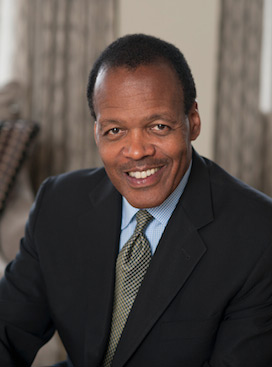
Lee Pelton
President, Emmerson College
Headquarters: Boston, Massachusetts
First Job: Dean of the College, Colgate University
What I’m Reading: The Brief Wondrous Life of Oscar Wao, Junot Diaz and The Sense of an Ending, Julian Barnes
Best Advice: Strive to be not only fit company for others, but for yourself as well.
Creating communities of learning
In 1916, John Dewey described democracy as the most ethical aspiration conceived by ethical communities. This aspiration was unobtainable, he wrote, without a society’s commitment to a life-long education to develop the “capacities for associated living” in a society characterized by complexity and diversity.
This is the great American dream. That we can create, out of the rich diversity of human experience, communities of learning—communities made both beautiful and effective by their pluralism—that will turn the tide of human want into a sea of joy and light.
This is our hope as a nation committed to equality.
And it is to our colleges and universities that the nation looks to fulfill its best ideals. It looks to us to lift up the nation so that it might live out—in full measure—its democratic ideals of inclusive excellence.
At Emerson College, the grounding assumption of all the work that we do is that true institutional excellence is inextricably tied to the diversity of our community and the ideas we engage, as well as the work that we produce.
Our formal Inclusive Excellence Initiative was announced last fall, and it has been the source of a remarkable amount of work since then. As a representative example of inclusive excellence, I note the successful Faculty Fellows Program, a three-day workshop that offered the 19 participating faculty members—drawn from across campus—the opportunity for sustained engagement with the pedagogical issues that go hand in hand with a diverse curriculum and a diverse classroom.
The strength of the Inclusive Excellence Initiative goes beyond even such powerful programs as this, however, to bring together members of our community in the development of common language and goals related to diversity and inclusion in order to develop a more inclusive campus environment; increase access and enhance the intercultural development of students in their curricular and co-curricular experience; maximize the talents of our already strong staff; develop outside relationships that address pressing problems and serve the common good; and recognize and reward innovative practices and measure accountability toward the achievement of inclusive excellence.
Recognizing that different points of view that emerge from diverse cultural heritages and ethnic backgrounds enlarge our aesthetic horizons, enrich our intellectual discourse, and sharpen our historical perspective, we have developed a framework of inclusive excellence that reflects the understanding that diversity and inclusion are catalysts for institutional change and the foundation for educational excellence.






